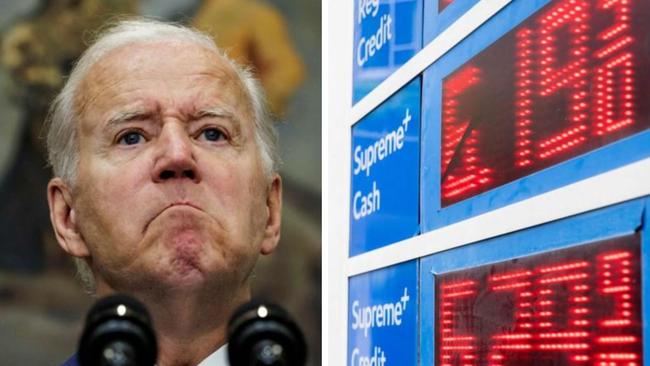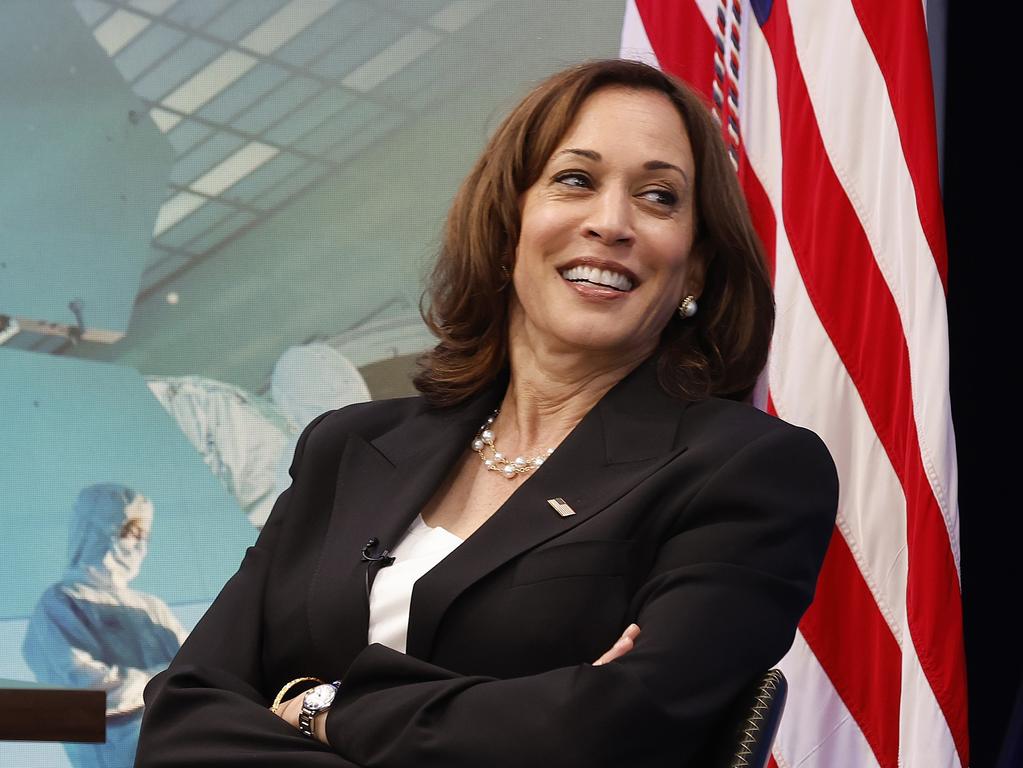US inflation hits 9.1pc in 40-year high
Fears of a recession in world’s biggest economy as President Joe Biden attempts to downplay surprise increase of consumer prices to 9.1pc over the year to June.

US inflation has breached 9 per cent for the first time since 1981, fuelling fears of a recession in the world’s biggest economy and speculation the Federal Reserve will lift interest rates even faster than it had already planned.
President Joe Biden downplayed the surprise increase in consumer prices – 9.1 per cent over the year to June, up from 8.6 per cent a month earlier – as “unacceptably high” but “out of date”, bracing for an inevitable backlash form voters less than four months from critical midterm elections.
“Energy alone comprised nearly half of the monthly increase in inflation. Today’s data does not reflect the full impact of nearly 30 days of decreases in gas prices, that have reduced the price at the pump by about 40 cents since mid-June,” Mr Biden, on a Middle Eastern tour, said in a statement.
Prices rose 1.3 per cent over the month to June, well above the 1.1 per cent that was the median expectations of the economists surveyed by the Wall Street Journal, including a 0.8 per cent increase in rents – one of the biggest components in the CPI – which was the largest increase since April 1986.
“Inflation makes everything difficult,” Lara Rhame, chief US economist for FS Investments, told The Wall Street Journal. “It erodes your savings, your wages, your profits. It’s punishing everybody.”
The labour department said so-called core inflation, which strips out volatile energy and food prices, increased 5.9 per cent over the year the June, almost triple the Federal Reserve’s target rate of inflation, pushed up by price increases across and ever broadening array of goods and services.
“From a year ago, food prices were up a steep 10.4 per cent, marking just the second time it has exceeded 10 per cent since March 1981,” said Kathy Bostjancic, a senior economist at Oxford Economics, putting down the overall price increase to strong consumer demand, low unemployment and supply chain stresses connected to the Russia-Ukraine war.
Petrol prices rose 11.2 per cent over the month, contributing to a 42 per cent increase in energy prices over the last 12 months, new cars were up 11 per cent over the year, and public transport, which includes airfares, increased almost 24 per cent.
“The good news is that the collapse in wholesale prices in recent weeks suggests those moves will fully reverse this month,” said, referring to the drop in the global oil price back below $US100 a barrel, which has contributed to a sustained decline in bowser prices in the US that won’t show up until the July inflation report.
Joe Biden says "we have the lowest [inflation] rate of almost every major nation in the world."
— RNC Research (@RNCResearch) July 13, 2022
FACT CHECK: The U.S. has one of the highest inflation rates in the developed world. pic.twitter.com/Uv4CCmiBcc
The Fed last month raised its interest-rate target by 0.75 percentage points, the largest increase since 1994, to 1.75 per cent, signalling further increases of at least as much in coming meetings of its policy committee should inflation, which has exceeded 8 per cent since March, fail to show signs of declining.
“The opportunity for a soft-ish landing has passed and the Fed’s best hope now is inducing a recession as soon as possible to prevent a de-anchoring of inflation expectations and a wage/price spiral,” warned Frank Flight, an economist at Goldman Sachs.
The chance of a 100-basis point increase later this month, which hasn’t occurred since 1990, surged from around 5 per cent to 42 per cent after the data were released, according to prices in financial markets.
The prospect of higher interest rates sooner will fuel speculation the US faces a recession later this year as the effects of higher interest rates start to bite. Centrals banks say lifting interest rates eventually lowers inflation by slowing economic growth and increasing unemployment, reducing the pressure for prices to rise in the economy.
“While some will draw parallels with the shockingly bad May CPI report, the backdrop is markedly different – commodity prices have fallen sharply and we’ve seen clearer signs of an economic slowdown, both of which will contribute to weaker price pressures ahead,” said Mr Pearce, playing down speculation the Fed will feel compelled to lift rates by 100 basis points rather than 75.
Polls show that high inflation, initially dismissed as temporary by mainstream economists, is Americans number one concern, creating a huge political headache for the Biden administration and ruling Democrats as Congressional elections approach in November.






To join the conversation, please log in. Don't have an account? Register
Join the conversation, you are commenting as Logout